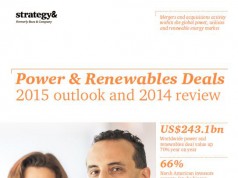 Washington – A new report by the Institute for Energy Economics and Financial Analysis (IEEFA) and Oil Change International quantifies for the first time the financial and carbon impact of public opposition to pipelines and other expanded investment in tar sands production.
Washington – A new report by the Institute for Energy Economics and Financial Analysis (IEEFA) and Oil Change International quantifies for the first time the financial and carbon impact of public opposition to pipelines and other expanded investment in tar sands production.
The report, “Material Risks: How Public Accountability is Slowing Tar Sands Development”, presents market analysis and industry data to support its estimates on lost sales revenue to the tar sands industry as public opposition creates delays and project cancellations. The report also describes other market forces that are putting tar sand developers at a growing disadvantage.
The report puts tar sands development lost revenue at $30.9 billion from 2010 through 2013, in part due to the changing North American oil market but largely because of a fierce grassroots movement against tar sands development. The report attributes 55% of the lost revenue, or $17 billion, to the diverse citizen protests against pipelines and the tar sands.
“Tar sands producers face a new kind of risk from growing public opposition,” said Tom Sanzillo, Director of Finance at IEEFA, and one of the lead authors on the report. “This opposition has achieved a permanent presence as public sentiment evolves and as the influence of organizations opposed to tar sands production continues to grow.”
“They have a deep reservoir of committed talent from all walks of life: High-profile billionaires and regular workaday folks are taking part. This is a group that is very well-schooled in the use of public-accountability tools meant to protect the public health and environment, and this is a group that is right also in its criticism of the questionable finances behind tar sands development.”
Steve Kretzmann, Executive Director of Oil Change International, said, “Industry officials never anticipated the level and intensity of public opposition to their massive build-out plans. Public opposition has caused government and its administrative agencies to take a second and third look. Legal and other challenges are raising new issues related to environmental protection, indigenous rights and the disruptive impact of new pipeline proposals.”
“Protests against pipelines are keeping carbon in the ground, and changing the bottom line for the tar sands industry. Business as usual for Big Oil – particularly in the tar sands – is over,” Kretzmann said.
A significant segment of opposition, the report notes, is from First Nations in Canada who are raising sovereignty claims and other environmental challenges.
Among the report’s findings:
- Market forces and public opposition have played a significant role in the cancellation of three major tar sands projects in 2014 alone: Shell’s Pierre River, Total’s Joslyn North, and Statoil’s Corner Project. Combined, these projects would have produced 4.7 billion barrels of bitumen that would in turn have released 2.8 billion metric tonnes of carbon dioxide (CO2) into the atmosphere. This is equivalent to the emissions of building 18 new coal plants that would last 40 years each.
- Tar sands producers lost $30.9 billion from 2010 through 2013 due to transportation bottlenecks and the flood of crude coming from shale oil fields. Of that, $17.1 billion, or 55 percent, can be attributed to the impact of public-accountability campaigns.
- The combination of risks facing the industry has the potential for cancelling most or even all of the planned expansion of the industry in Canada.
- Rather than seeing more than a doubling of output from 2 million barrels of oil per day to 4.8 million barrels per days – as the industry predicts – the report projects flat production levels.
- Tar sands producers have lagged, with 9 of 10 leading tar sands producers in Canada underperforming the broader stock market in the last five years.
- Analysts have recently downgraded their outlook for tar sands production.
The report also explores how smaller tar sands producers are having trouble accessing capital markets, how the industry is increasing capital spending even as it faces declining cash flows, weak revenue expectations, rising production costs and tight margins.
“Many tar sand producers are moving forward with large investments during a time of increasing financial uncertainty,” Sanzillo said. “One or two of these factors would be manageable, but taken together they call into question the viability of these projects.”
Click here to read/download the Full Report.
Source: IEEFA | Oil Change International.
The Institute for Energy Economics and Financial Analysis (IEEFA), based in Cleveland, Ohio, conducts research and analyses on financial and economic issues related to energy and the environment. The Institute’s mission is to accelerate the transition to a diverse, sustainable and profitable energy economy and to reduce dependence on coal and other non-renewable energy resources. For more information, visit www.ieefa.org.
Oil Change International is a research, communications, and advocacy organization focused on exposing the true costs of fossil fuels and facilitating the coming transition towards clean energy. Oil Change works to achieve its mission by producing strategic research and hard-hitting investigations; engaging in domestic and international policy and media spaces; and providing leadership in organizing resistance to the political influence of the fossil fuel industry. For more information, visit priceofoil.org.














